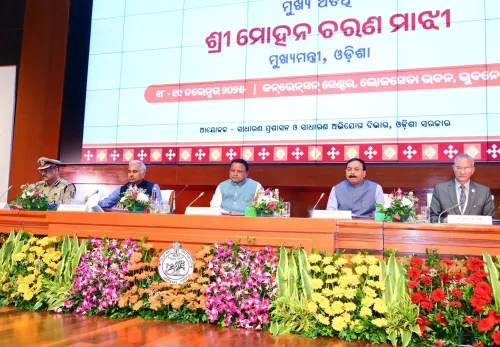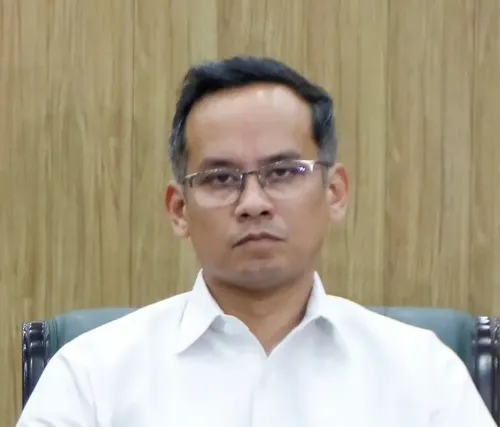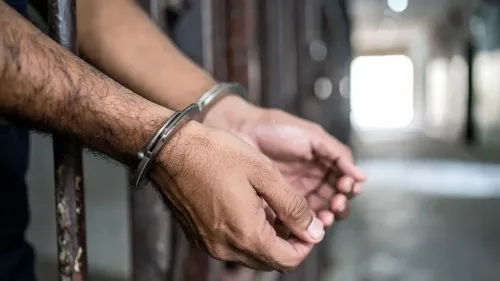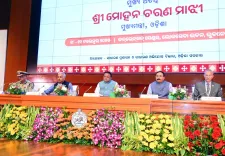What Happened at the State-Level Ghoomar Festival in Rajasthan?
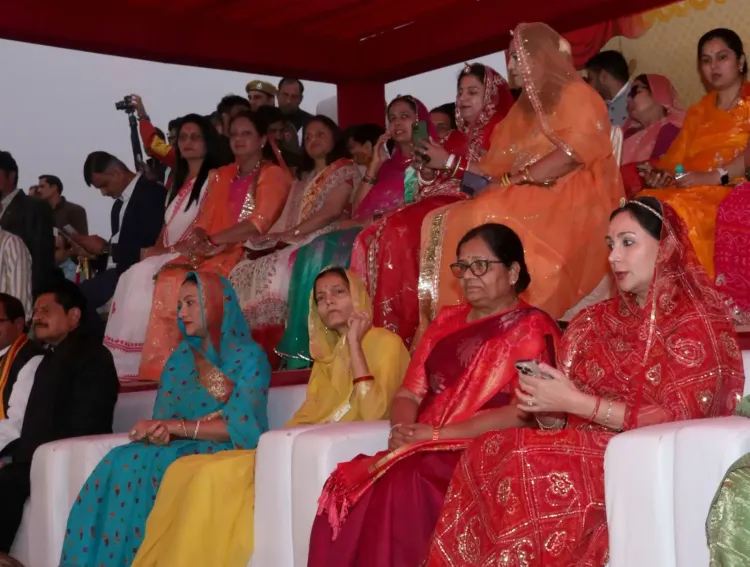
Synopsis
Key Takeaways
- Record-breaking participation: 6,000 women performed Ghoomar simultaneously.
- Annual celebrations: Plans for yearly Ghoomar festivals to promote cultural heritage.
- Community involvement: The event highlights the importance of public participation in preserving folk traditions.
- Tribute to cultural icons: A homage was paid to Padmashree Govardhan Kumari.
- Integration of tradition and innovation: Aiming for a sustainable cultural tourism model in Rajasthan.
Jaipur, Nov 19 (NationPress) The Deputy Chief Minister and Minister of Tourism, Arts & Culture, Diya Kumari, inaugurated a magnificent State-Level Ghoomar Festival organized by the Rajasthan Tourism Department at all seven divisional headquarters on Wednesday.
This festival aims to steer Rajasthan’s folk culture and traditional arts into a new direction while promoting community engagement in cultural activities. The event made history by earning a spot in the Asia Book of Records with about 6,000 women performing Ghoomar simultaneously across the state.
The Jaipur division hosted its segment at the Vidyadhar Nagar Stadium's football ground, where thousands of women came together, showcasing the vibrant essence of Rajasthan’s rich cultural heritage.
The festival was alive with rhythm and melodies, highlighting the state's true cultural dignity.
During the inauguration, Diya Kumari played the Nagada, welcomed the participants, and shared her blessings. She stressed the importance of passing on Rajasthan’s folk culture, arts, and heritage to future generations. She also announced that large-scale Ghoomar festivals would be held annually to bring this iconic dance form onto the global platform.
Alongside Jaipur MP Manju Sharma and other dignitaries, Diya Kumari joined in the Ghoomar dance, reflecting the state’s vibrant cultural identity while motivating young women and girls attending the festival.
The festival featured the ancient Ghoomar style performed to the song “Ek Baar Ho Piya Jaipur Shahar Padhar Jo…”. Diya Kumari stated that the state government aims to create a sustainable cultural model by integrating tradition, community participation, and innovation to broaden Rajasthan’s tourism appeal.
A comprehensive plan is being developed to position the Ghoomar Festival as a signature cultural emblem of Rajasthan, with aspirations for its inclusion in both national and international cultural agendas. A tribute was paid to the late Padmashree Govardhan Kumari, a well-known supporter of Ghoomar and Rajasthan’s folk dances.
A short documentary showcasing her life and contributions to the arts was also presented. Many women, particularly the youth, participated enthusiastically, with residents, dignitaries, students, and the general public flocking to the stadium in large numbers to celebrate.
The event was attended by notable figures including Civil Lines MLA Gopal Sharma, Principal Secretary Tourism Rajesh Yadav, Tourism Commissioner Rukmani Riyad, Financial Advisor Amit Goyal, Joint Directors Punita Singh, Dalip Singh Rathore, Devendra Meena, and Deputy Directors Upendra Singh Shekhawat and Naval Kishore Baswal.
The festivities commenced with a Ghoomar performance by artists from the Gangaur Dance Academy, illustrating a married woman requesting her husband to bring her gemstone-encrusted jewelry.
Another performance depicted a heroine in longing, asking her barmaid to respectfully call her husband back.
The audience also enjoyed an impressive self-defense display by the girls’ team from the Fencing Association, along with a captivating musical performance by the CRPF band.
Women adorned in colorful traditional attire began arriving at the stadium from noon, spending the afternoon practicing dance, taking selfies, and soaking in the festive atmosphere.
With over 1,500 registrations each in Jaipur and Jodhpur, these divisions were recognized in the Elite Awards Category. A total of Rs 2,34,000 was distributed across five categories: Best Group Dance, Best Costume, Best Jewelry, Best Synchronization, and Best Choreography in Jaipur and Jodhpur, while the other five divisions received a total of Rs 1,04,000 in awards.

